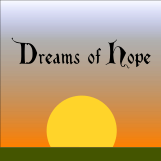Yonwach
The language of the gwerin people, Yonwach is a complex language with several modes depending on subject matter and audience. Phonetically, it relies on liquid vowels and palatalized consonants, as well as elaborate tonal and emphasis shifts. Words tend to be long and complex--new words are formed by aggregation. Subtle differences in word choice and grammar have huge effects on meaning--conversations in Yonwach tend to be multi-layered with puns, verbal assaults, and other indignities hidden among flowery compliments.
Its written form uses a composite symbol set where the basic syllable-symbols can be attached to each other to form new words (with more formalized rules for compound-word formation than in Sinitic languages) and written in two dimensions, with different patterns carrying meaning. This is usually only done in High or Court modes, however, as it's very inefficient for conveying normal information.
Modes
Low Yonwach
The common tongue, low Yonwach is what commoners speak to each other, as well as within families. Most non-gwerin who learn spoken Yonwach learn low Yonwach. Written from top to bottom, left to right. It lacks much of the status-markers and intricately-involved wording of the other modes.
High Yonwach
Spoken by nobles of different families, as well as at formal occasions, High Yonwach is a form of combat with words. Every statement has multiple layers, most of which are traps. High Yonwach has different grammatical constructions depending on mood, relationships, alliances, and even times of day. Everything you say is being judged.
Court Yonwach
The name is a bit of a misnomer. Court Yonwach mostly only exists in written form and for reading traditional gwerin poetry. The written form is the formal language of wizardry--most classically-trained wizards write their spellbooks in personal dialects of Court Yonwach and its spoken form is a traditional source of syllables for arcane spell-casting, especially among elves. High-caste poetry is also traditionally written and read in Court Yonwach. An even more flowery and confusing language than High Yonwach, it is strongly archaic and highly inefficient for anything like real communication.
